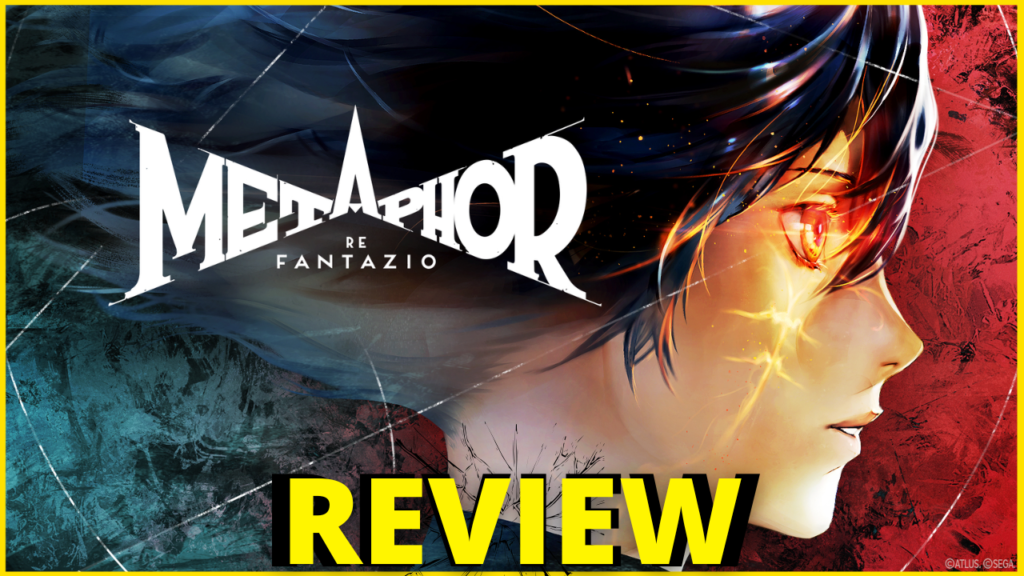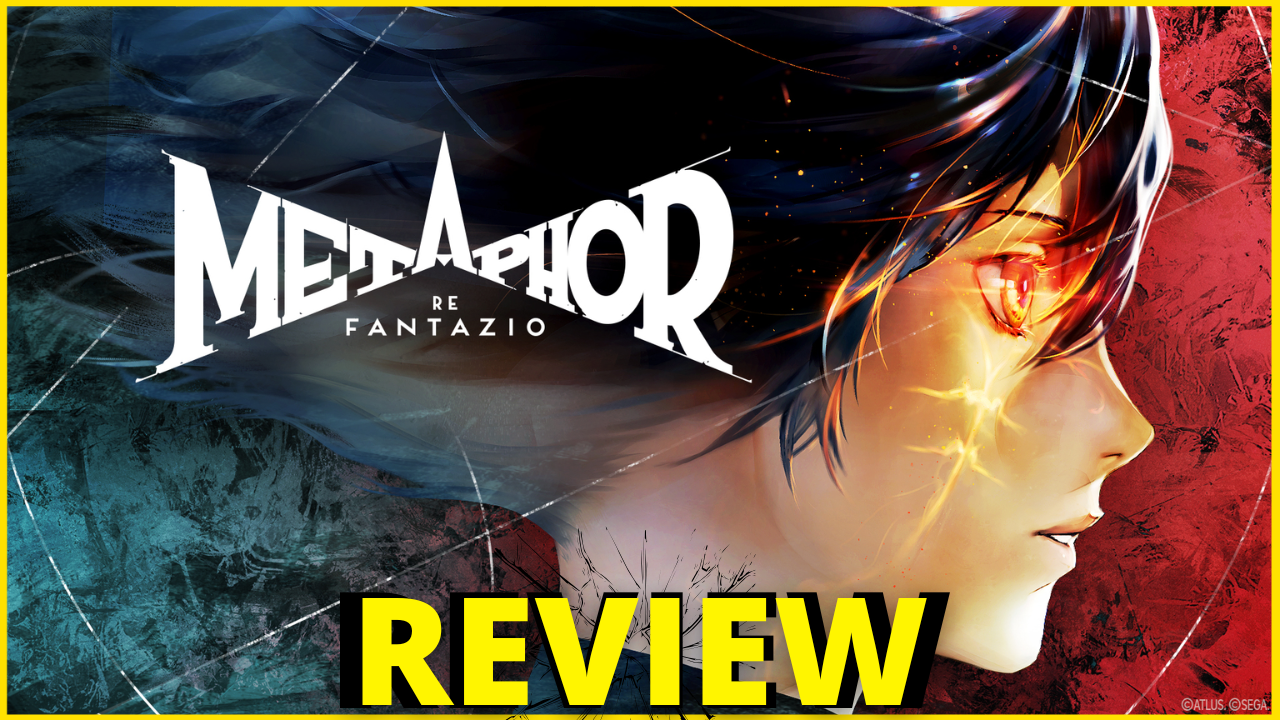Persona 5 is one of my favorite games of all time. It had style, substance, romance and characters that I connected with on a level that few other games have reached. one day the developers of this wonderful game (you should try it if you haven’t already) announced they were making a new game franchise, Metaphor Refantazio. I knew from the jump I was going to have to do a Metaphor Refantazio review, but I must admit when I originally heard about this game I was sold more on that there was another mainline game from the Atlas studio than anything else.
Going into the game I had questions. Was this new game just going to be fantasy Persona? Was it going to hit the same way? Who was going to be my new Waifu?
These are the question I had going into the game. And after hours and I mean a ton of hours I’ve rolled credits on this meaty bad boy. So should you Play Metaphor Refantazio?
Let’s dive into it.
Narrative
In Metaphor: ReFantazio, you play as a simple, ordinary guy in a fantasy world who lacks memories of his past but knows that the message he and his fairy companion carry must reach a general. Soon enough, events spiral out of control, entangling you in a tale of political intrigue, assassination plots, a historical election, and much more.
The game delivers a complex and deeply political narrative, with the events in the United Kingdom of Euchronia serving as a symbolic reflection of real-world injustices and prejudices. The world is inhabited by eight distinct “tribes,” each representing a different humanoid race, complete with unique cultures, traditions, and stereotypes that shape their societal roles. The protagonist, an Elda, is a fitting focal point for these themes, as his tribe has long been oppressed under the existing power structure. The late king established the rules for succession, and participants in the contest are protected by magic that prevents them from being killed outright, turning the competition into a battle for public faith through political maneuvering and manipulation. Their ultimate mission is to lift the curse afflicting the prince, and as more allies join their cause, their pathway to success intertwines with the race for the throne. Tragic events and unexpected twists make this story dynamic, unpredictable, and heartwarming.
The game’s story begins with a strong sense of urgency, immediately pulling you into its world and making you care about its characters from the outset. That’s not an easy task, but the quality of writing is so well-developed that I believe this story would have worked in other mediums as well. The pacing is excellent for most of the game, though there is some unnecessary padding toward the end (which I’ll touch on later). Despite that minor gripe, the narrative remains compelling and thought-provoking throughout its lengthy runtime.
Gameplay
Each in-game day, players can engage in one task in the afternoon and another in the evening. Critical dungeons must be completed before the in-game deadline, or the mission will fail, requiring players to restart multiple days. The challenge comes from organizing all the actions you wish to take within the limited time available.
The turn-based combat system is built around Archetypes—character-specific entities based on different imagined depictions of heroism. As players form relationships with various characters, they unlock new Archetypes that can be studied by party members. Like Persona, Metaphor features main dungeons, but the world offers far more to do beyond them. Activities range from classic side quests and optional dungeons to meaningful interactions with party members. Engaging in conversations strengthens bonds, unlocking additional combat abilities, improved items, and discounts at shops. Throughout the world, players also encounter events and dialogues that enhance the protagonist’s virtues, such as courage, wisdom, and eloquence.
While exploring dungeons, combat seamlessly blends real-time and turn-based mechanics. Enemies can be struck with hack-and-slash attacks in the overworld, instantly defeating weaker foes. Stronger enemies trigger the full turn-based combat system, which revolves around the Archetypes. Unlike Persona, these Archetypes function as freely assignable classes, with each one containing a unique set of skills. These abilities can be transferred between Archetypes, allowing for a high level of team customization. This flexibility enables players to create powerful counters to enemies, which balances the game’s high difficulty. Enemies deal significant damage and have long health bars, but strategic planning allows the player to dominate battles. Additionally, the game embraces the idea of teamwork by enabling two characters to perform powerful Synthesis attacks together. Another key combat element is the ability to reposition party members—those in the backline deal less physical damage but also take reduced damage from enemy attacks.
The game’s calendar-based structure is reminiscent of Persona but has its own distinct spin. While in towns, the protagonist can take on requests, shop, and improve royal attributes through various activities. These attributes—imagination, courage, tolerance, wisdom, and eloquence—help shape the protagonist into a stronger leader and contender for the crown. The protagonist can also strengthen bonds with party members and other followers, unlocking various abilities and bonuses. Since time is a limited resource, players must carefully plan their daily activities. Outside of towns, exploration shifts toward dungeons filled with monsters, puzzles, and valuable treasures. Some dungeons require players to solve intricate puzzles, while others feature difficult-to-reach rewards that make full use of the game’s movement mechanics.
Flaws
While the voice acting in Metaphor: ReFantazio is excellent, it is disappointing that the game isn’t fully voiced. Cutscenes feature full voice acting, but much of the day-to-day dialogue, including interactions with companions, lacks this feature. Given Atlus’s history of releasing enhanced versions of their games, this could be addressed in a future edition, but its absence here is noticeable.
The dungeon design is another area of frustration. Some dungeons feel like tedious corridor mazes with repetitive layouts. The restriction on turns adds an element of urgency and strategy, but it can also make luck a major factor—missing a final spell due to RNG can turn an otherwise manageable battle into a frustrating experience. This issue becomes even more apparent in the final boss battle, which is an enormous difficulty spike. By the time I reached the epilogue, I was simply ready for the journey to end.
Another notable omission is the lack of player-choice romance. One of my favorite aspects of Persona 5 was the romance mechanics—getting to know its wonderful cast, making decisions, and experiencing the consequences of my choices. Metaphor replaces this with a focus on deep friendships and bonds, which is compelling in its own right, but I found myself missing the dating mechanics that Persona perfected.
Additionally, the game drags a bit toward the end. While the story remains engaging, the final stretch introduces unnecessary filler content that slows the momentum. Some players may appreciate the additional content, but after 70+ hours, it’s fair to question whether it was truly necessary.
Overall, Should You Play Metaphor: ReFantazio?
If you’re a fan of Persona or JRPGs in general, Metaphor: ReFantazio is an easy recommendation. The game’s narrative is both timely and well-written, offering a world rich with lore and personality. The gameplay takes familiar elements from Persona but evolves Atlus’s formula in exciting ways.
The characters are likable, each with a deep backstory that draws you in. While Metaphor has a few flaws, they are minor compared to its strengths. If you enjoy turn-based combat, love Persona, or are simply curious about the hype, I highly encourage you to check out Metaphor: ReFantazio. This game delivers, and I assure you—you will not be disappointed.


